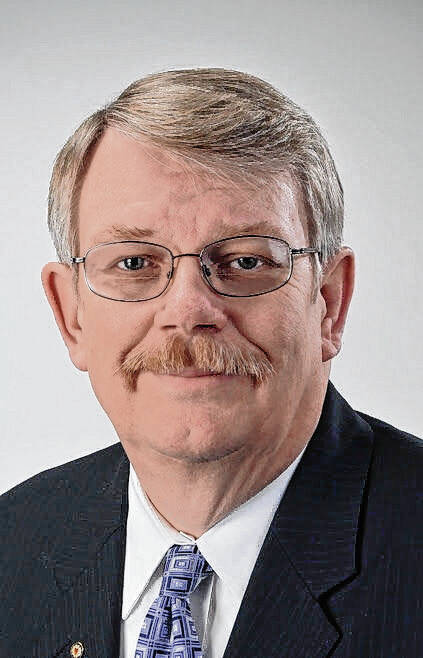It seems all the news about our schools is bad, really bad. One can understand why parents are alarmed over their children being indoctrinated with critical race theory and trans-whatever by unaccountable educators.
It’s not a simple matter of objecting to these curricular abominations; it is also a realization that this is being done in dark of night, so to speak, in the hope that the parents are asleep. No wonder parents are demanding answers at local school board meetings by freely exercising their First Amendment rights to petition the government. Domestic terrorism, indeed.
The contempt with which too many prominent educational elites view parents is antithetical to our American creed as a self-governing people. It is no wonder parents are voting with their feet when school choice is available.
Private and parochial schools historically have served as an alternative to public schools. Often this has a religious motive, the desire to raise one’s children in the faith while also providing an appropriate civic education. In my hometown of Fort Wayne, there used to be a close working relationship among the public, Roman Catholic and Lutheran school systems. Respect and cooperation formed the operating principle. For example my small Lutheran elementary school did not have a gymnasium so we were allowed to use the one at the neighboring public school.
The columnist and movie producer Dinesh D’Souza, an early adjunct scholar of this foundation, spent a week in Fort Wayne back then researching a commissioned article for this journal entitled: “Fort Wayne: The Last Salvageable Public School System.” One of his points was that the cooperation between the public and private school systems had made both better. Again, it is a feature that has been lost.
My sense of things now is that the respect between the two is gone and whatever cooperation which still exists is due to federal funding regulations for things like special education. Indiana’s attendance-based funding for public schools, compounded by an effective voucher program, certainly poisoned what remained of this relationship. It’s all about the Benjamins.
The home-schooling movement continues to gain in popularity. I haven’t figured out a way to determine how many Hoosier children are home-schooled but the number who withdraw from their local public schools each year gets the attention of local superintendents. Student leaves; state dollars head out the door.
Throw charter schools onto the burn pile and combustion occurs. It does not matter that charters are public schools because tuition support follows the child, hitting public school balance sheets where it hurts most.
Another educational alternative which is getting traction these days is the classical model.
I suspect most people equate the classical model with making their children learn the Latin language. For classical purists Latin is the foundation of the curriculum. Even though most consider it a dead language, its progeny are alive and well in our vocabulary and grammatical structures.
However, these purists overstate their case by attributing much too much to Latin, at least in my opinion. Sure, Latin has contributed more vocabulary to modern English than German has, especially when the Norman French words are counted as Latin derivatives, but this does not reflect our everyday usage. Some linguists argue that 70 percent of commonly used English words are Anglo-Saxon. English is classified as a Germanic language, not a Romance one.
Once one gets past the Latin lightning rod, there is much to like in what the classicists are trying to do. Theoretically based on the medieval trivium of grammar, logic and rhetoric, this approach uses many tried-and-true methodologies to capitalize on a child’s natural abilities to learn at given stages of development.
Instruction during the grammar stage, ages 12 and below, relies heavily on absorption of facts — multiplication tables, memorized lists, dates, etc. When I heard this during a presentation, I recognized it as exactly the way I was taught in a Lutheran school in the 1950’s. We memorized and recited daily. I can still recite the list of U. S. presidents, English kings and books of the Bible. I would be able to do the same with a map of the world, identifying nations and capitals, except for the fact there are now almost 200 of them compared to the mere 100 of my school days.
Once past the grammar stage, the child progresses to the logic one in which he puts these facts together and forms conclusions. Finally the rhetoric stage trains the older child in making effective argumentation to inform and to persuade.
This appears to be a sound model to follow but there are criticisms of classical education. The one I hear most often is that it deemphasizes science. This causes some parents to shy away if their children are headed toward technical or scientific careers.
Still, there is much to like in the classical approach but one need not worship at its altar to reclaim the best of its theory. It is in large part a return to traditional education, both in its philosophy and its methodology. It can be an effective alternative to the ever more progressively woke public schools.
The classical advocates just need to talk less about Latin if they want parents to listen to the rest of their spiel. Overselling can be as ineffective as underselling.
Mark Franke is an adjunct scholar of the Indiana Policy Review and its book reviewer, is formerly an associate vice-chancellor at Indiana University-Purdue University Fort Wayne. Send comments to [email protected].





